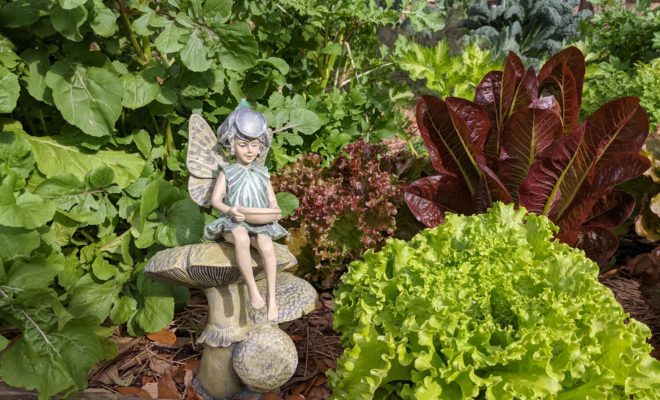
Education
Education Matters: Building Better Gardens Through the UF/IFAS Extension
By Ryan G. Van Cleave
June 2021—Here’s a little secret I’m not eager to share—whatever the opposite of a green thumb is, that’s what I’ve got. So, when I was asked to focus this month’s Education Matters column on gardening, I got worried. Thankfully, I’ve learned that we have a fantastic resource in place for people like me, as well as those of you who know what you’re doing and just need a little guidance or support.
We have a UF/IFAS Extension on Clark Road right here in Sarasota. In case you don’t know—I didn’t!—Extension is a partnership between state, federal, and local governments to provide scientific knowledge and expertise to the public. In short, the UF stands for University of Florida, and IFAS is for Institute of Food and Agricultural Sciences. And every one of our 67 counties in Florida have some form of Extension as well. Who knew?
To put it plainly, the UF/IFAS Extension encompasses thousands of faculty members, scientists, educators, administrative staff, and volunteers, all working to provide solutions for our lives and betterment. It also turns out they have numerous people stationed right here in Sarasota who have the expertise required to save my plant Armageddoned yard.

While I haven’t considered actually planting my own garden (note my secret above), I’ve wondered how I might learn about having one, if the mood ever struck me to give it a shot. Like, is there a place to practice? Or to hang around with those who have greener thumbs?
The answer is yes! Mindy Hanak, Community and School Gardens Coordinator, reported that we have seven community gardens in our community—five are in county parks, and the other two are hosted by the City of North Port and the City of Sarasota. “For anyone interested in learning about creating a community garden or community compost station, I hope they attend one of our Shared Spaces webinars,” she suggested, with the next one being on June 16. Since face-to-face gardening and plant education hasn’t been an option because of the pandemic, the Extension has moved to delivering their training and programs online—check out their Eventbrite site or their own website for details.
Hanak added that the community gardens in their program are allotment gardens, which means that “while fencing, shared tools, and water are provided, individual gardeners provide their own plants, seeds, and sweat equity in gardening their plot. In addition, each gardener is expected to contribute to the upkeep of the garden. The volunteer garden managers donate time, effort, and skill so that these spaces are available for their neighbors to enjoy when they become garden members.”
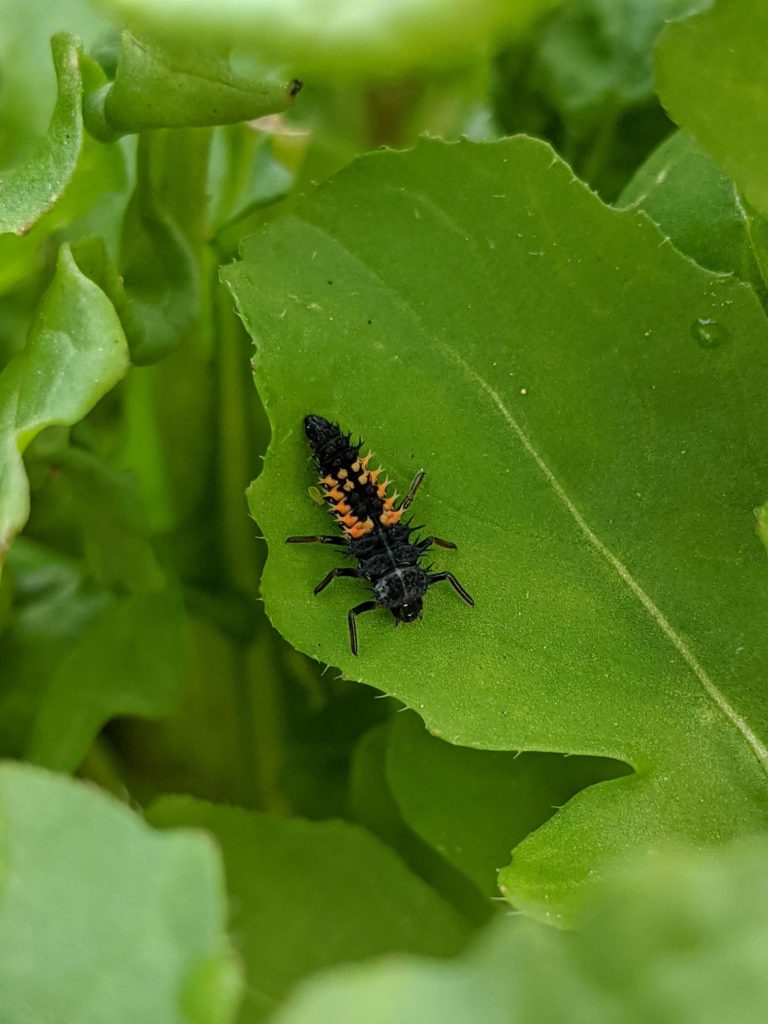
Because I had questions about pest management—I saw a suspicious ant on my porch the other day and I freaked—I spoke with UF/IFAS employee Carol Wyatt-Evens, whose job title is “Chemicals in the Environment” agent, which I soon realized meant that she’s the go-to person regarding pests and poisons. And Wyatt-Evens explained that I—like many people—don’t understand how insects interact with one another. “For example, the lady beetle larva is a weird, dinosaur-looking creature. People kill it because they see plant damage and then they see this larva on the plant,” she said. “This insect is actually a predatory insect with a voracious appetite for aphids which are the insects actually causing the damage. People don’t realize which insects are truly pests versus which one are good insects.”
Fortunately, the extension website has information for indiscriminate insect foes like me. I haven’t yet found my suspicious ant on their list as a must-deal-with candidate, but I’ll keep looking.
One of the other UF/IFAS experts I spoke with was the Extension’s Florida-Friendly LandscapingTM expert, Wilma Holley. She helped me see that landscaping and gardening—while different—go hand in hand. “A lot of times,” she said, “I’ll mix in gardening plants with landscaping, so you don’t just have a bare area for part of the year. And it’s building your soil up, which is a good way to accommodate your landscape and your vegetable gardening at the same time.”
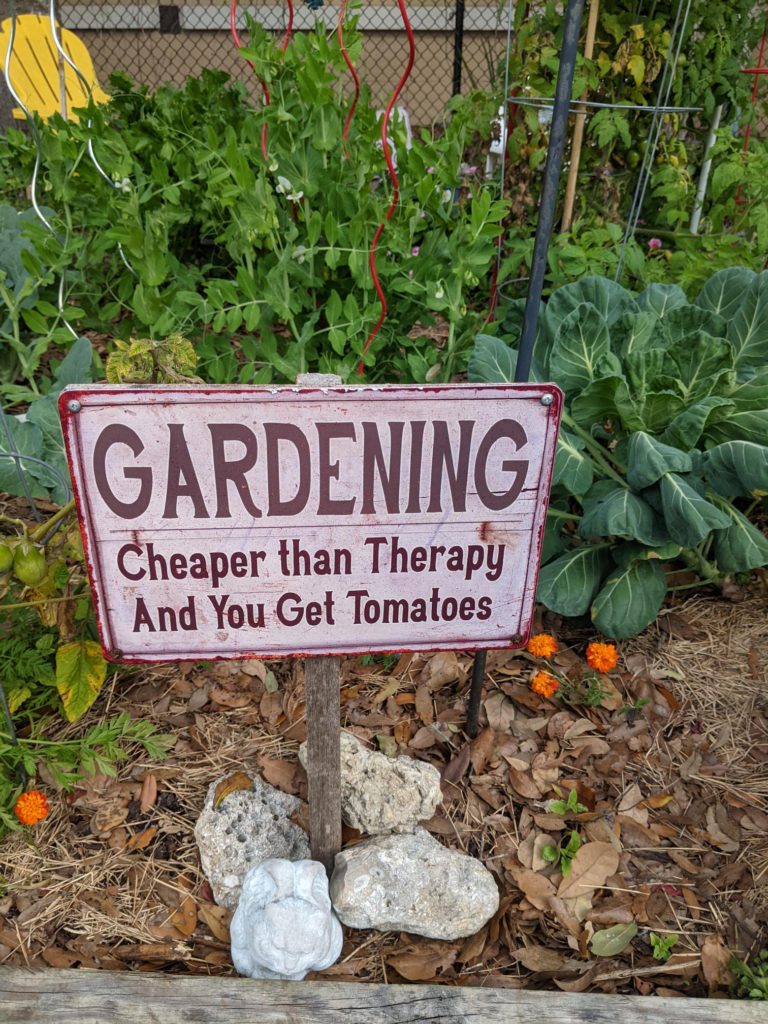
The Florida-Friendly LandscapingTM principles matter, too, whether you’re landscaping or gardening. Right plant, right place is one of the nine keys. Another vital one is having an efficient, effective irrigation system, which uses less water, gives a better plant/yard appearance, and has less runoff and nutrient leaching.
“Some people think that if something is Florida friendly, it’s going to be ugly,” Holley said. “That’s wrong. You can still have a beautiful landscape and beautiful plants and be Florida friendly. It’s all about proper watering, not using pesticides, pruning appropriately, and those kinds of things.”
Fortunately, Holley gives free webinars such as “Florida-Friendly LandscapingTM 101” which teaches the nine Florida-Friendly LandscapingTM Principles to help us realize what we’re doing wrong and how we can make better choices.
When I said I’d always thought about growing something that I could actually eat, Hanak pointed out that during the pandemic, many people became interested in edible gardening, so they created a 25-part edible gardening series to support that increased interest.
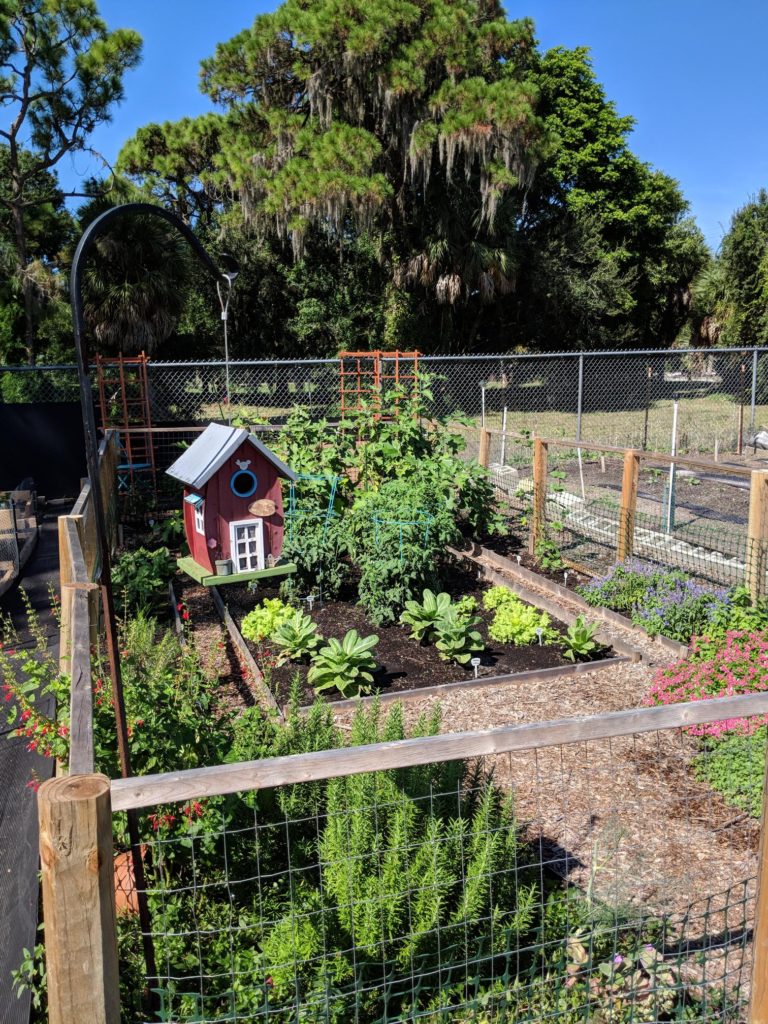
“Some folks had a rough year and find respite in gardening—holding soil in their hands, planting seeds, nourishing something and watching it grow,” she said. “Our community gardens are now operating off wait lists. Many were already popular, but more people want to access fresh vegetables with less interaction at stores, and/or to increase their self-sufficiency.”
She added that while edible gardening is awesome, it’s not for the faint of heart. “Summer edible gardening requires weeding and planning for what your next planting in fall will be, starting seedlings at home (likely indoors), ordering seeds, etc.,” she explained. “You CAN grow summer crops or cover crops, but plan for the heat and dress and hydrate accordingly.”
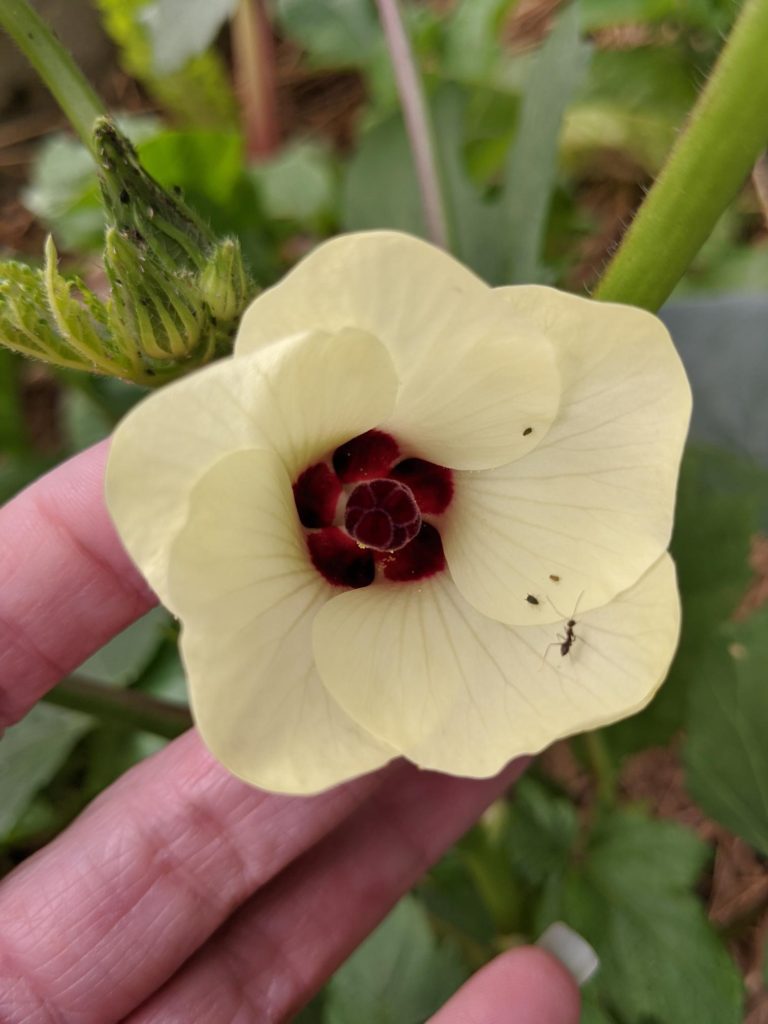
Yes, it’s a muggy oven out there most days, but I’ve decided to take the plunge. I’m going to plant something. Not lettuce, cabbages, squash, or herbs that you can get so cheaply at the big-box stores, because the chances of their survival are slim at this time of year, or so I’ve learned from the UF/IFAS Extension resources.
So, I’m going to start with…okra.
Okra is a high-heat star, it seems, that produces beautiful flowers followed by a ton of tender pods for eating or pickling. Supposedly, they’ll produce even in 100° heat, so long as they’re sufficiently watered. And I’ve got my water barrel system working properly again at last, thanks to a little help from some new friends.
If this goes well, I might try a sweet potato. Stay tuned for updates.
In the meantime, assess your own plant and garden situation. If you’re not getting optimal results or want to get started with your own growing, check out the Extension and use their free resources. They’re here to help, and, unlike me, they know the secrets to making things bloom.
FOR MORE INFORMATION about the UF/IAS Extension in Sarasota County, visit sfyl.ifas.ufl.edu/sarasota.
FOR THEIR WEBINARS AND PROGRAMMING visit ufsarasotaext.eventbrite.com.
FOR EDIBLE GARDENING IN OUR AREA visit tiny.cc/ufsaraext_edibleweb.



You must be logged in to post a comment Login